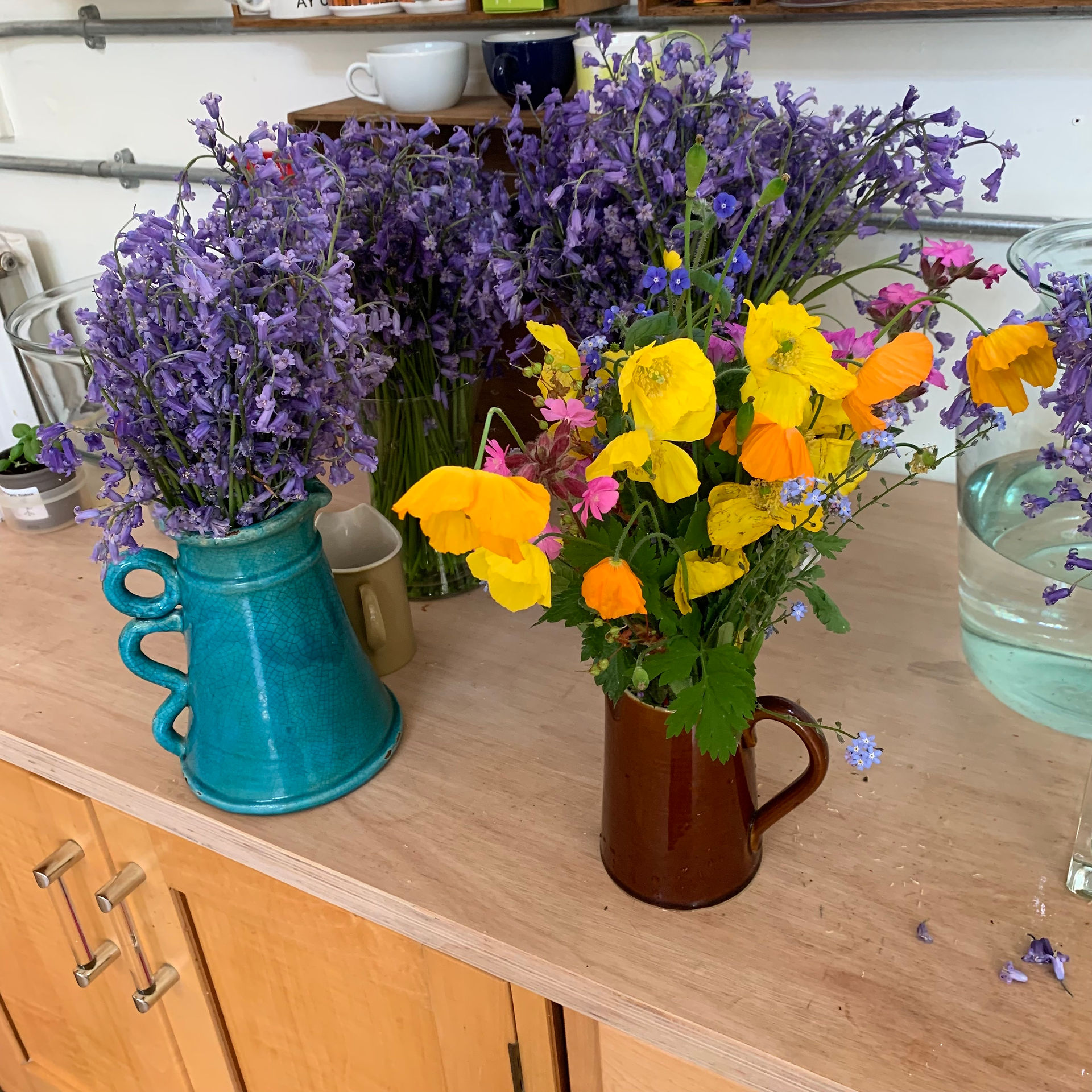A day in the life of an independent funeral celebrant
- hewittlara
- Sep 4, 2023
- 3 min read
Updated: Sep 18, 2023

The first ceremony I ever conducted as an independent funeral celebrant was for Peter, who was building his mum's coffin in our barn. Peter is the ex-partner of a friend of mine. For many years he has played and taught Indian flute in India, and in Wales. I met him when he was in a period of transition, with his aged mother nearing the end of her life, and when he needed a space in which to fix up his van.
'I'll pay you,' he offered, 'it will just be for about six weeks.' I waived the payment, he was a friend of a friend after all. Eighteen months later, his van was still there.
It had a wood burner in it now, but no bed. Yet Peter had slept for several months in the van in the barn and had set up a makeshift kitchen there, using an old pine table my mum had thrown out, and from somewhere or other he had procured a plastic hip bath. In spring the barn homed ewes and their lambs, and pipes of cold water ran round the edges of the barn to keep the sheep hydrated, and now to enable Peter's ablutions. In my house, about a hundred metres from the barn, I advertised rooms to rent on Air Bnb, but luckily I tended to attract open minded guests who didn't mind Peter wandering through the kitchen to take a shower when it really did get too cold for a sheep dip. Peter is a gentle soul, with sparkly eyes and a warm, honeyed voice. He had spent years living with and caring for his mum in Wales before she made the final move to a care home. Peter has patience, a quality I seem incapable of developing and must ogle at those who possess it, as though watching a squirrel break a nut with its bare teeth.
Squirrels aside, when Peter's mum passed away he asked if I could help with the ceremony, i.e. lead it. I was happy to; I was very fond of Peter and I needed the experience. I had done a training course to be a celebrant, on which we had been warned that funeral directors are renowned ringmasters who uphold traditions, stand on ceremony and expect that as a celebrant your shoes will be shined and you will know when you are to bow to the hearse and the coffin and when, oh heavens forbid, is the right moment to press the button that closes the curtains around the coffin at the crematorium. Needless to say, Peter's mum's ceremony wasn't going to be like that. For a start, Peter's mum was going to have an open coffin, there wasn't even going to be a lid let alone a curtain, and the ceremony was going to start with Peter and his friends sitting cross legged on the floor, playing some transcendental music on their instruments for an unspecified length of time.
In a sense, the job of a celebrant is the job of a medium. I am just there to hold the space so that the words that need to be heard can be said, sometimes with tears, so that silences can have their moment and music be a part of something that has a beginning and an ending. I create the illusion of structure, which is what ceremonies do with our lives. They are markers on our journey, the trig points, the place where we lay a stone. At least this is how I have experienced my first summer of ceremonies; there weren't many of them but each occupied much more than its thirty-to-sixty minutes of space. They were like bubbles that once blown, stay perfect forever, that are not popped by autumn rains and winter winds. They carry some of our spirit with us.

Peter's mother's service was beautiful: small, intimate, filled with light and music, and with good sofas to sit on instead of straight-backed chairs. It was a sunny day in May and it felt like summer had arrived. After the funeral I walked up through a hill full of cows to a reservoir atop the moors, wiggled into my swimsuit and slipped into the water.

'And did you get what you wanted from this life, even so?'
These were the words I had typed on the funeral cards I had printed out for Peter's mother, quoted from the poem 'Late Fragments' by Raymond Carver. They chased each other round my head as I swam beneath a few clouds out playing at the start of another summer.
'I did.
And what did you want?
To call myself beloved, to feel myself beloved on the earth.'



Comments